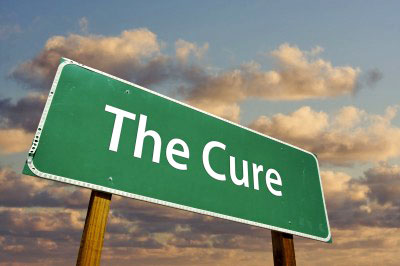|

by Sayer Ji
April 22, 2012
from
GreenMedInfo Website
Could a cure for advanced, chemotherapy and radiation resistant
cancer have already been discovered as far back as 1967? Could this
curative substance have been so close to us for all this time, as to
be part of our own blood and a constituent of our own urine?
As crazy as it may sound to conventionally-minded folks in both the
general public and medical professional spheres, the discovery of
powerful anti-cancer peptides secreted by our own bodies only adds
to hundreds, if not thousands of already extant natural and/or
naturally-derived anti-cancer treatments, some which scientists
have known about for over a century, e.g.
turmeric has been
proven to have therapeutic potential in over 100 cancers, but which
threaten the financial and political hegemony of far more toxic
and less effective therapies, e.g.
chemotherapy and radiation.
Dr. Burzynski's
Cancer Cure

Antineoplastons are a
group of naturally-occurring peptides and amino acid derivatives
which control tumor growth, and have been proven in clinical studies
on a number of advanced cancer cases to be highly effective and
non-toxic, relative to chemotherapy.
First identified by Dr.
Stanislaw Burzynski in human blood in 1967,
he observed,
"[T]here were
significant differences in the peptide content in the serum of
cancer patients as compared with the control group."
Owing to the fact that
similar peptide fractions are found in human urine and can be
purified as a bulk source of antineoplastons, Dr. Burzynski began a
research program "for the identification of antineoplastic peptides
from urine" known as the Burzynski Research Institute (BRI), which
was incorporated under the laws of the State of Delaware in 1984.[i]
The discovery that urine contains therapeutic compounds is not
novel.
According to Dr. Burzynski:
"Medicinal use of
urine and urine extracts has been known for centuries in ancient
Egypt, Greece, Rome, India and North and Central America. In
modern times, the first study of growth-inhibiting substances in
urine was conducted in 1937.
The research on
urinary peptides has a long history and was initiated by a
Polish researcher, S. Bondzynski, in 1897."[ii]
Dr. Burzyinski’s
research lead to the discovery of five different peptide fractions
which he named Antineoplaston A1, A2, A3, A4 and A5.
The first active
component was identified as 3-phenylacetylamino-2,6-piperidinedione
and was named Antineoplaston A10. Two synthetic derivatives of
Antineoplaston A10 were named Antineoplaston AS2-1 and
Antineoplaston AS2-5.
We have done an exhaustive index of the research on the
topic as found on the National Library of Medicine, which can be
found on its Antineoplastons research page. The information found
there indicates the preventive and/or therapeutic value of
antineoplaston therapy in up to 30 diseases.
Watch the first 36 of 108 minutes of the critically acclaimed "Burzyinski
- Cancer is a Serious Business":
Note:
Dr. Burzyinski will be a featured speaker at the ALIVE NEW YORK
health celebrity/eco benefit/award show June 29 & 30th, which will
be live streamed as well. Learn More
Endnotes
[i] Burzynski
Research Institute/About Us http://www.burzynskiclinic.com/burzynski-research-institute.html
[ii] Antineoplastons: history of the research (I). Drugs Exp
Clin Res. 1986 ;12 Suppl 1:1-9. PMID: 3527634
|

